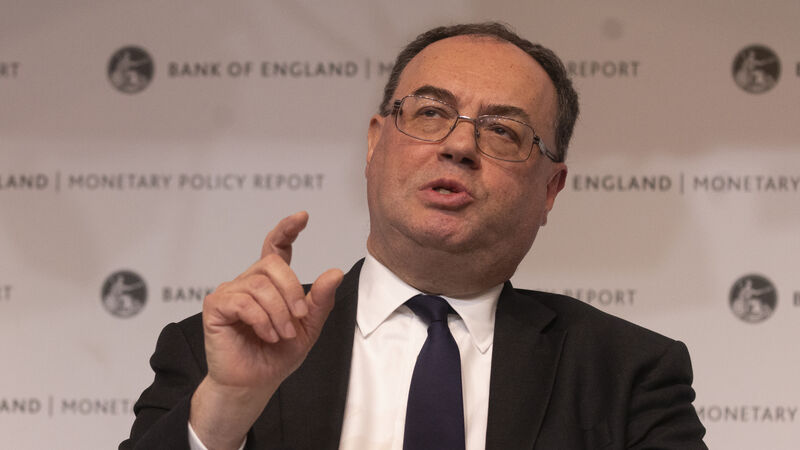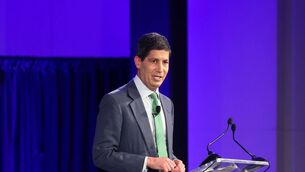Oliver Mangan: UK economy facing into significant headwinds

Bank of England governor Andrew Bailey is expected to preside over four interest rate hikes this year in the UK.
The Bank of England was quite downbeat on the prospects for the UK economy in its February monetary policy report.
It expects the combination of tax hikes, high inflation — especially higher energy prices — as well as a tightening of monetary policy that will see mortgage rates rise, will deliver a major blow to real household disposable income, which could decline by around 2% in 2022 and a further 0.5% next year.














